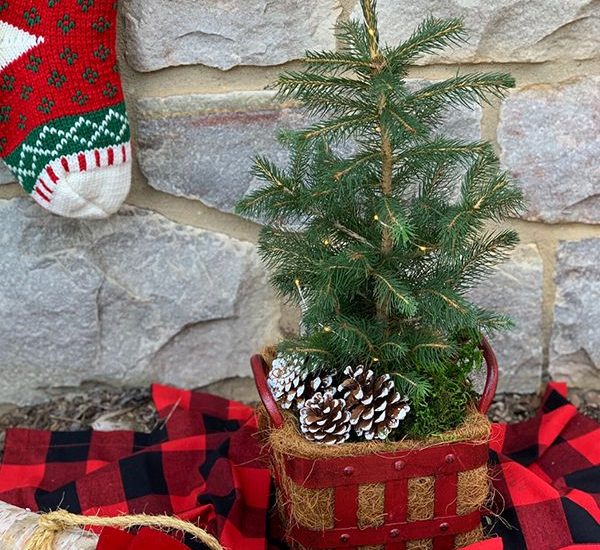Best Privacy Trees for Tennessee Landscapes: Top Picks and Planting Tips
Last updated: February 7, 2026
Tennessee is known for its lush greenery, and many homeowners in the state take pride in maintaining a beautiful yard and landscape. However, with the increasing need for privacy, it can be challenging to find the perfect balance between aesthetics and seclusion. This is where privacy trees come into play, providing both functionality and beauty to any outdoor space.

Privacy trees are a great addition to any yard, offering a natural and effective way to create a private outdoor space. They can also add value to a property, making them a smart investment for homeowners. In Tennessee, there are several types of privacy trees that are well-suited to the state’s climate and soil conditions, making them an ideal choice for those looking to enhance their outdoor space.
Whether you’re looking to create a secluded retreat or simply want to add some greenery to your yard, choosing the right privacy trees can make all the difference. In this article, we’ll explore some of the best privacy trees for Tennessee and provide tips on how to choose the right trees for your landscape. With our expert advice, you’ll be able to create a private oasis in no time.
Selecting the Right Privacy Trees for Tennessee

When it comes to selecting privacy trees for Tennessee, there are a few factors to consider. Understanding Tennessee’s climate, deciduous vs evergreen trees, fast-growing varieties for quick privacy, and small-space solutions for smaller yards are all important considerations when selecting the right privacy trees for your property.
Understanding Tennessee’s Climate
Tennessee has a humid subtropical climate, with hot summers and mild winters. This means that trees that thrive in warm, humid conditions are ideal for privacy screens in Tennessee. Some of the best options for privacy trees in Tennessee include cypress trees, eastern red cedar, eastern hemlock, juniper, and wax myrtle.
Deciduous vs Evergreen Trees
Deciduous trees lose their leaves in the fall, while evergreen trees keep their foliage year-round. While deciduous trees can provide privacy during the spring and summer months, they may not be the best option for year-round privacy. Evergreen trees, such as arborvitae, leyland cypress, and emerald green arborvitae, are ideal for year-round privacy screens.
Fast-Growing Varieties for Quick Privacy
If you’re looking for fast-growing privacy trees in Tennessee, there are several options to consider. Italian cypress, green giant arborvitae, and bald cypress are all fast-growing varieties that can quickly provide the privacy you need. However, it’s important to keep in mind that fast-growing trees may require more maintenance and pruning to keep them under control.
Small-Space Solutions for Smaller Yards
If you have a smaller yard, there are still plenty of options for privacy trees in Tennessee. Boxwood and arborvitae are both great choices for smaller spaces, as they can be easily pruned and shaped to fit your specific needs. Additionally, slow-growing trees like the Canadian hemlock and Arizona cypress can be a great option for smaller yards, as they won’t outgrow the space as quickly.
Overall, when selecting privacy trees for Tennessee, it’s important to consider the climate, deciduous vs evergreen trees, fast-growing varieties, and small-space solutions that will work best for your property. With the right trees in place, you can enjoy the privacy and beauty of your yard for years to come.
Maintaining Your Privacy Trees

When it comes to maintaining your privacy trees, there are a few key factors to keep in mind. Proper care and maintenance will not only ensure the health and beauty of your trees, but also help to maximize their privacy benefits.
Pruning and Shaping for Aesthetics and Health
Regular pruning is essential for maintaining the shape and health of your privacy trees. Pruning can help to remove dead or diseased branches, improve air circulation, and promote healthy growth. It can also be used to shape your trees for aesthetic purposes, such as creating a conical shape or maintaining a certain height.
It’s important to use the proper tools and techniques when pruning your trees. Make sure to use sharp, clean pruning shears and saws to avoid damaging the tree. When shaping your trees, be sure to maintain a natural look and avoid over-pruning.
Watering and Fertilization Requirements
Proper watering and fertilization are also important for maintaining the health of your privacy trees. Most trees require regular watering, especially during dry spells, to keep their roots hydrated. Fertilization can also help to promote healthy growth and foliage.
Be sure to follow the watering and fertilization requirements for your specific tree cultivars. Over-watering or over-fertilizing can lead to root rot or other issues, so it’s important to strike the right balance.
Disease and Pest Prevention Strategies
Finally, it’s important to take steps to prevent disease and pests from affecting your privacy trees. Regular inspections can help you catch any issues early on, before they have a chance to spread.
There are a variety of disease and pest prevention strategies you can use, depending on the type of tree and the specific issues you’re facing. For example, some trees may benefit from regular applications of fungicides or insecticides, while others may require more targeted treatments.
By following these tips for maintaining your privacy trees, you can ensure that they remain healthy, beautiful, and effective at providing seclusion and privacy for your backyard or landscape.

